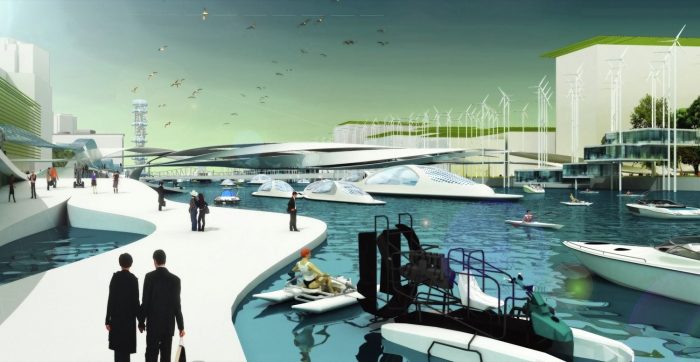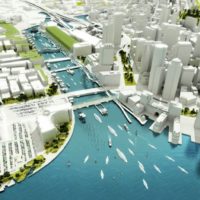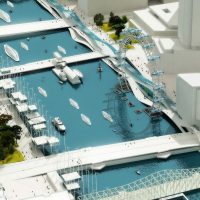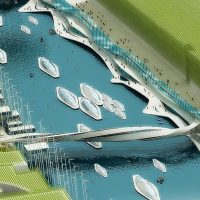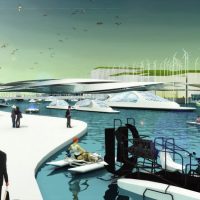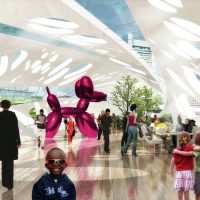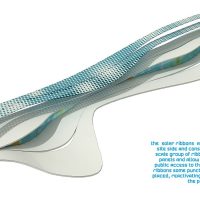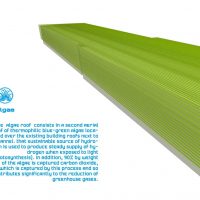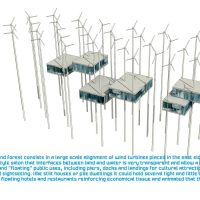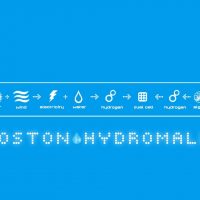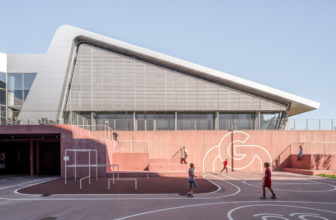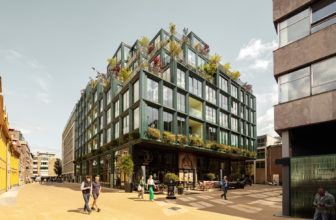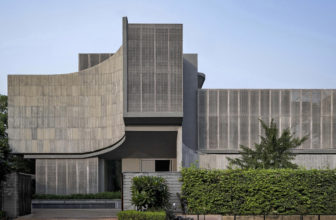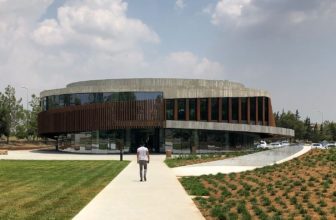A submission for SHIFTBoston’s first competition, the Boston Hydromall by Influx_Studio attempts to understand the effects of creating a zero carbon economy within the urban footprint of Boston that already has established a well-defined order and character.
According to the architects, all industrial energy systems inscribes its technological order into the urban fabric of a city, so when trying to establish a new regime, such as a zero carbon energy economy, it is bound to have spatial implications on the city. It is therefore important to not only understand the ways in which architecture can promote and contribute towards this idea, but also anticipate how it will affect the area to insure it’s success in the future.
The major element in the design of the Boston Hydromall is creating a new water landscape, recognizing that the future of Boston is inseparable from the future of their bay and its waterfront. Not only is water a driving force in the shape and character of Boston, but as a resource it can also be an unlimited source of energy, being one of the most strategic urban resources for city development in a global zero carbon economy. To best utilize the water, Influx_Studio’s proposal envisions Fort Point Channel as a new Energy Infrastructure at the heart of a symbiotic strategy that connects downtown’s commercial waterfront with the South Boston Waterfront. By doing this the channels is transformed into a dynamic water gateway and an ecological infrastructure with the ability to support new leisure activities, restaurants, floating hotels, and art galleries.
Not only is water examined as a usable source of energy in this project, but other forms of harvesting energy is implemented into the design as well. With the use of a “wind forest”, “solar ribbons”, and “algae roof”, Hydromall has been conceived as a completely integrated, energetic closed loop. The electricity obtained from the wind turbines and solar PV panels would be used for producing and storing pure hydrogen.
The main exploration behind this proposal is to demonstrate how infrastructures created for harvesting energy can also be developed into great urban spaces. Although the issues and research done on the topic of how to initiate a zero carbon economy through architecture is important and falls right beside the efforts of green design, if this proposal were to be constructed it would drastically change the iconic image of Boston’s waterfront. Whether or not the Hydromall proposal is a good fit for Boston, the idea itself creates an open urban support to develop water activities and a new economical tissue that would be interesting to see in action.
- Courtesy of Influx_Studio
- Courtesy of Influx_Studio
- Courtesy of Influx_Studio
- Courtesy of Influx_Studio
- Courtesy of Influx_Studio
- Courtesy of Influx_Studio
- Courtesy of Influx_Studio
- Courtesy of Influx_Studio
- Courtesy of Influx_Studio


